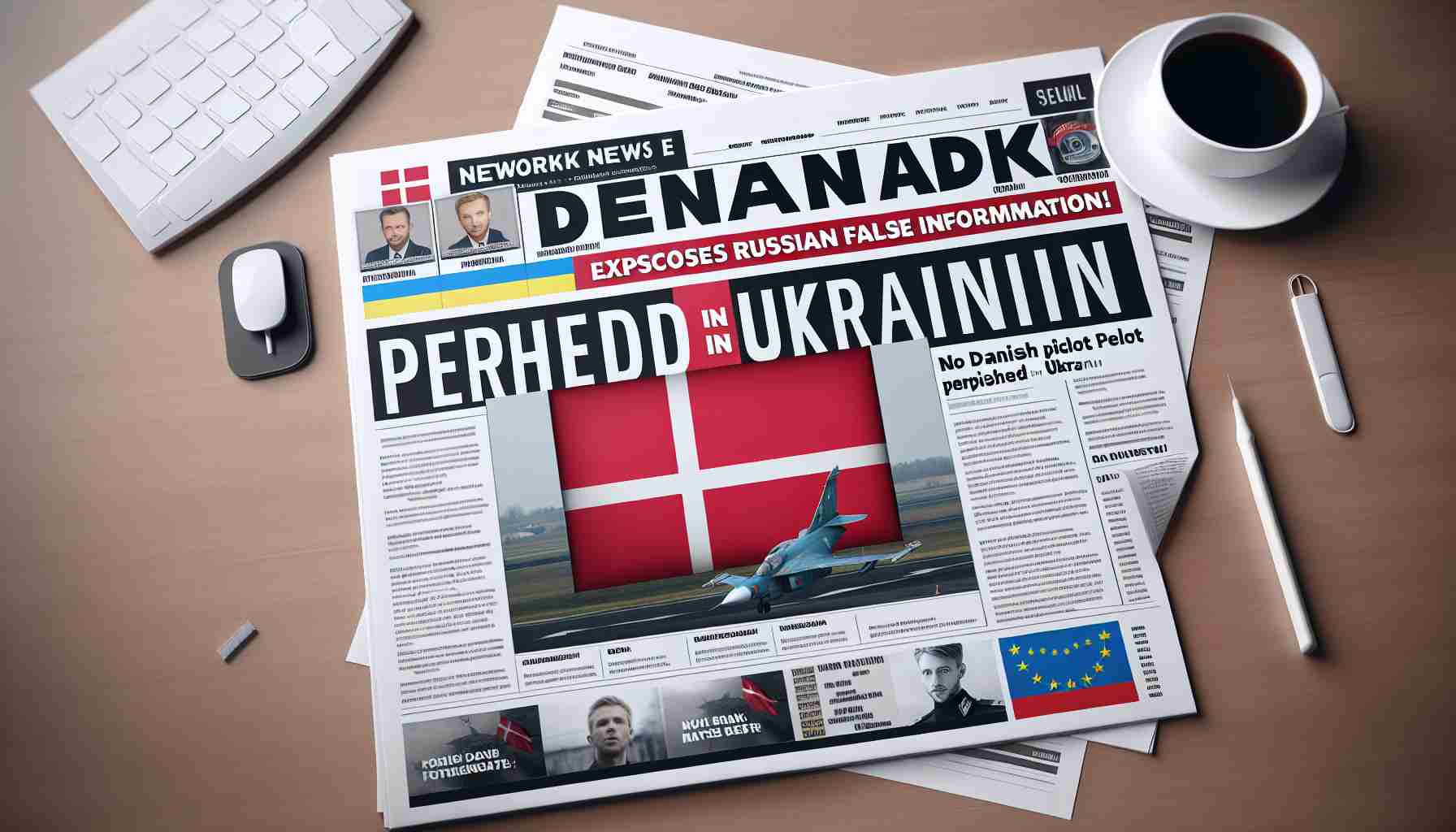The Danish Ministry of Defence has swiftly countered a false report from Russia claiming that a Danish F-16 instructor lost his life in a missile strike in Ukraine. This misinformation was swiftly labeled as a deceitful narrative by officials in Copenhagen.
Denmark’s Defence Minister, Troels Lund Poulsen, strongly condemned the allegations, asserting that there have been no casualties among Danish soldiers in Ukraine. He denounced the report as an example of Russian media attempting to undermine Denmark’s commitment to supporting Ukraine, characterizing it as a calculated effort to spread disinformation amid rising geopolitical tensions.
The inaccurate report forms part of a wider Russian strategy aimed at destabilizing Western nations, specifically targeting Denmark. Although the report cited an unnamed military figure, its lack of credible sourcing has raised considerable skepticism regarding its truthfulness.
A recent intelligence assessment highlights Russia’s ongoing disinformation tactics, suggesting that such fabrications are meant to create confusion and discord among NATO allies. With the Kremlin continuously enhancing its disinformation arsenal since the onset of the Ukraine conflict, this incident underscores the growing complexities faced by Denmark and its allies.
As Denmark takes a proactive stance in the information war, the incident serves as a reminder of the ongoing challenges that pose security threats to NATO nations amidst escalating hostilities.
Implications of Disinformation on Global Security and Unity
The recent incident involving the Danish Ministry of Defence and Russian disinformation illuminates the critical role of information warfare in shaping international relations and global security. The spread of misleading narratives not only jeopardizes the morale of military personnel and civilians but also destabilizes trust among alliances like NATO. Denmark’s resolute response underscores a broader recognition that misinformation can be a weapon as potent as conventional arms, aiming to fracture the unity of Western nations.
Moreover, the long-term implications of sustained disinformation campaigns could lead to a more fragmented society, where citizens and policymakers alike resort to cautious skepticism regarding official communications. Over time, this erosion of trust can foster an environment ripe for political polarization and social discord within and between nations.
On an environmental level, the continued focus on military readiness and defense spending, driven by fears of disinformation and geopolitical instability, may divert crucial resources from addressing pressing issues like climate change. Data from various reports indicate that national defense expenditures are eclipsing public investment in sustainability initiatives, potentially undermining global efforts to combat environmental degradation.
Looking forward, as the war of narratives intensifies, it becomes imperative for nations to bolster their media literacy and counter-disinformation strategies, fostering resilience among their populations. The ability to discern truth from falsehood may become as crucial as military capability in safeguarding not just national security, but also societal cohesion in a rapidly evolving global landscape.
Denmark Defies Russian Disinformation: What You Need to Know
Denmark Responds to Russian Misinformation
In recent developments, the Danish Ministry of Defence has taken swift action against misleading claims circulated by Russian media, which alleged that a Danish F-16 instructor had died in Ukraine due to a missile strike. Danish defence officials quickly dismissed this claim as false, reiterating that there have been no casualties among Danish personnel involved in Ukraine.
The Impact of Disinformation on Geopolitical Stability
Defence Minister Troels Lund Poulsen vehemently criticized the false report, asserting that it represents a calculated effort to undermine Denmark’s support for Ukraine. He emphasized that this type of misinformation is not just an isolated incident but part of a broader strategy employed by Russian media to destabilize Western nations. This strategy is particularly aimed at creating schisms among NATO allies during a time of increasing geopolitical tensions.
Ongoing Disinformation Tactics
An intelligence assessment indicates that Russia has significantly ramped up its disinformation campaigns since the onset of the Ukraine conflict. The intention behind these tactics is clear: to sow confusion and mistrust among NATO member states. This particular incident illustrates the urgency for nations to enhance their counter-disinformation strategies to mitigate any potential fallout.
The Role of NATO and Collaborative Efforts
As the security landscape continues to evolve, NATO members, including Denmark, are compelled to develop stronger collaboration for sharing intelligence and countering misinformation. This collective approach is crucial in fortifying the resolve of member nations and ensuring a unified front against external threats.
Security and Sustainability Concerns
The incident emphasizes not only the security implications but also raises questions regarding the sustainability of information warfare in Europe. With disinformation campaigns becoming increasingly sophisticated, NATO member nations must proactively invest in innovative solutions to enhance cybersecurity and protect the integrity of information shared among allies.
Conclusion and Future Predictions
As tensions persist between NATO countries and Russian authorities, it is likely that disinformation campaigns will continue to escalate. It will be essential for nations like Denmark to adapt and respond effectively to these narratives to maintain their strategic status and support for Ukraine. Strengthening alliances and improving public communication strategies will be pivotal in countering harmful misinformation that threatens regional stability.
For more insights on Denmark’s role in international security, visit Denmark’s Ministry of Defence.

















